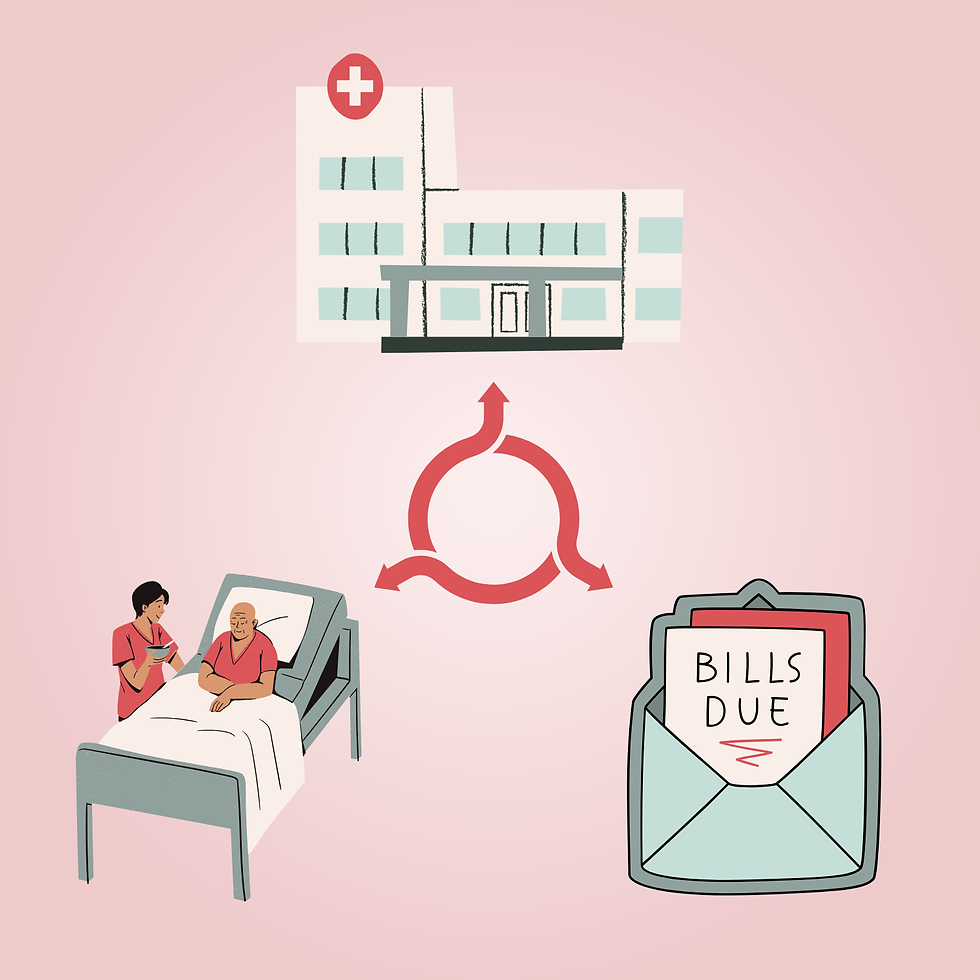Access to abortion education raises further barriers for patients, residents, students
- Olivia Kim
- Mar 7, 2023
- 3 min read
Prior to the Supreme Court ruling on the case of Dobbs v. Jackson Women’s Health Organization in 2020, Stanford University found that half of medical schools provided either no training on abortions or only a single lecture.1 Since the ruling has resulted in further restrictions on abortion procedures among many states, fewer medical students and residents have access to comprehensive education on the procedure.
OB/GYNs provide the most abortions in the U.S., followed by family medicine physicians.1 The American College of Obstetricians and Gynecologists recommends that all obstetrics and gynecology residency programs include opt-in/opt-out abortion training and include education on abortions in all medical school curricula.2 Beyond simply recommendations, the Accreditation Council for Graduate Medical Education, the entity that accredits Graduate Medical Education programs, requires that all OB/GYN training programs offer their residents access to abortion training.3 This means that many programs must send their residents out of state borders to receive the necessary training in their professions.

For OB/GYN residents and medical students seeking out that specialty, having geographic restrictions in their access to education could lead to limited opportunities of what programs they could pursue later if they are unable to access abortion training.4 For example, a medical student applying to residency programs must now also consider which residency programs have the ability to further their educational experience in terms of abortion procedures. Some residency programs in states where there are harsher restrictions on abortions may even favor students that have opted out of abortion training or education at their school.4 According to a paper published by the journal of Obstetrics & Gynecology, nearly 44% of OB/GYN residents are in states which are likely or certain to ban abortions altogether.5
Not only do these state restrictions have wide impacts on the educational opportunities of medical students and residents, but it is also likely to diminish the career opportunities available for OB/GYNs in states with abortion restrictions. Since abortions, whether through pharmaceutical drugs or a procedural or surgical method, are such an integral part of the profession, many residents are not even seeking employment in states with such restrictions.5
While there are requirements for OB/GYN programs to provide access to abortion training, there is no such requirement for family medicine specialists. Not only is it important for the top two specialties that provide abortions to patients to have comprehensive education on the procedure, but it is also necessary for primary care physicians to be knowledgeable about the procedure even if they do not administer it. Since patients oftentimes will see a primary care doctor as their first contact in the case of pregnancy, it is highly likely that their window of options for family planning starts with that physician.5 If their primary care doctor is uninformed about how an abortion is done, what the implications of the procedure are, and in general, is unable to relay essential and factual information to their patient in an objective and empathetic manner, the consequences could be catastrophic for the patient. Even if fewer physicians are able to administer an abortion, education on the procedure is still essential to caring for the lives of patients regardless of the geographic and political status of a government.
Edited by: Kelly Ma
Graphic Designed by: Eugene Cho
References
Tanner, L. (2022, April 19). Medical students seeking abortion training face nationwide restrictions. PBS. Retrieved March 2, 2023, from https://www.pbs.org/newshour/nation/medical-students-seeking-abortion-training-face-nationwide-restrictions
Increasing access to abortion. ACOG. (2020, December). Retrieved March 2, 2023, from https://www.acog.org/clinical/clinical-guidance/committee-opinion/articles/2020/12/increasing-access-to-abortion#:~:text=ACOG%20recommends%20that%20funding%20for,on%20training%20programs%20and%20funding.
Heisler, E. J. (2022, September 7). Abortion training for medical students and residents. CRS Reports. Retrieved March 2, 2023, from https://crsreports.congress.gov/product/pdf/IN/IN12002
Weiner, S., & Writer, S. S. (2022, June 24). How the repeal of Roe v. Wade will affect training in abortion and Reproductive Health. AAMC. Retrieved March 2, 2023, from https://www.aamc.org/news-insights/how-repeal-roe-v-wade-will-affect-training-abortion-and-reproductive-health
Pollard, J. (2022, October 19). Abortion access looms over medical residency applications. APNEWS. Retrieved March 2, 2023, from https://apnews.com/article/abortion-health-business-education-family-medicine-3fbeef4338fbdcaf48f4f133055c9f78


Comments